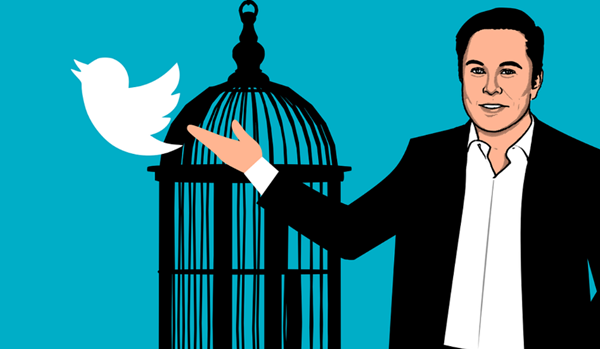
Elon Musk is a divisive character, to say the least. Depending on who you ask, he’s either a problematic creator of failing businesses who is sticking his nose into politics where he has no right, or he is an unjustified target of a smear campaign whose backstory has been misrepresented entirely and who has created and continues to create revolutionary things for the world while fighting the system and upholding freedom of speech at all costs.
Where we stand on the matter isn’t really important, but it is interesting to note that the controversy around his ownership of Twitter has created a lot of chirping and not much flight. For all the noise his detractors have made about leaving the social media platform behind, citing the new owner and the views they believe he holds, the app and site continue to retain users and the few attempts to create an alternative platform have failed in their migration efforts.
Interestingly, this is not the first time a controversial figure has been the figurehead of a big online platform. In fact, many say that Tom from MySpace was the last truly popular and uncontroversial person to head up a social media platform, and they may well be right. Mark Zuckerberg is hardly a popular name or face, despite billions of people using Facebook every single day.
Likewise neither the eye rolling at Jeff Bezos nor the allegedly unethical work practices at Amazon seem to have made a dent in the company’s fortunes. But Musk is a different proposition altogether. Love him or loathe him, he certainly has main character energy, and has really been front and center of the Twitter takeover, putting his personality and views out there for all to see.
We don’t really know what Zuckerberg thinks about much of anything, nor Bezos, so we don’t know much about the people we’re giving our money and attention to in each of those cases. But Musk’s thoughts are shared all day long on his own platform, which is very much a break from the norm. Are his ideas any better or worse than those of his Facebook and Amazon counterparts? We simply don’t know, so we can only wonder.
The problem for his critics is this: he has taken over a hugely popular platform, which took years to build up the number of users it has. Those users have, in turn, spent years building their followings and working out how to use the platform to their best advantage in life and in business. This is why it’s very challenging for any new platform to come along and challenge it.
While those who want out want out immediately, there is no equivalent place to go, nowhere with comparable functionality and reach, because that takes time. Twitter became popular in the first place because it found its niche so successfully, providing a service that couldn’t be found anywhere else. Threads was the closest potential contender, but there was simply too much friction in the user experience for people to have the patience to allow it to take over.
While those who want to leave Twitter are adamant about their wish to do so, the truth is that human nature values convenience and a frictionless online experience; we want to be able to join a platform, immediately find what and who we’re looking for, and use it with ease. Few people have the patience for the slow and difficult phases of building up our carefully cultivated follow lists all over again, learning how to share content in the most compelling way, and building our experience to our liking all over again.
When the only thing people don’t like about Twitter is the guy who owns it, that’s a minor obstacle in using our favorite social media platforms on a day-to-day basis. If this weren’t true, we’d all be shopping around elsewhere for our budget products online, rather than heading to Amazon, but the truth is that convenience, ease and familiarity beats the longer and more difficult journey to the end result when it comes to online experiences. So unless and until Twitter becomes genuinely difficult to use, it’s going nowhere.
